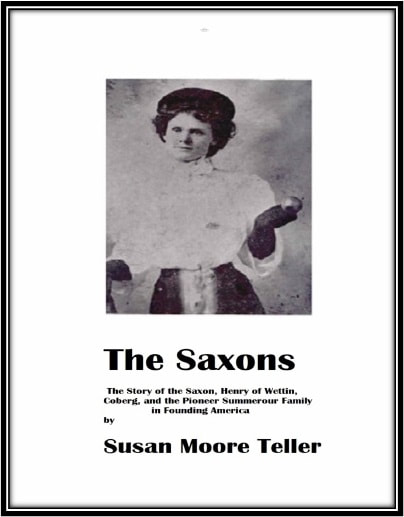1)Tombstone of Henry Weidner, aka Henry Whitner,NC PS, Revolutionary War. 2)Tombstone of Henry Summerour 3) Susan Mae Summerour, believed to be taken at the time of her wedding to PK Wininger, 4)Lela Elizabeth Wininger, at the time of her wedding to Marion Lee Moore.
